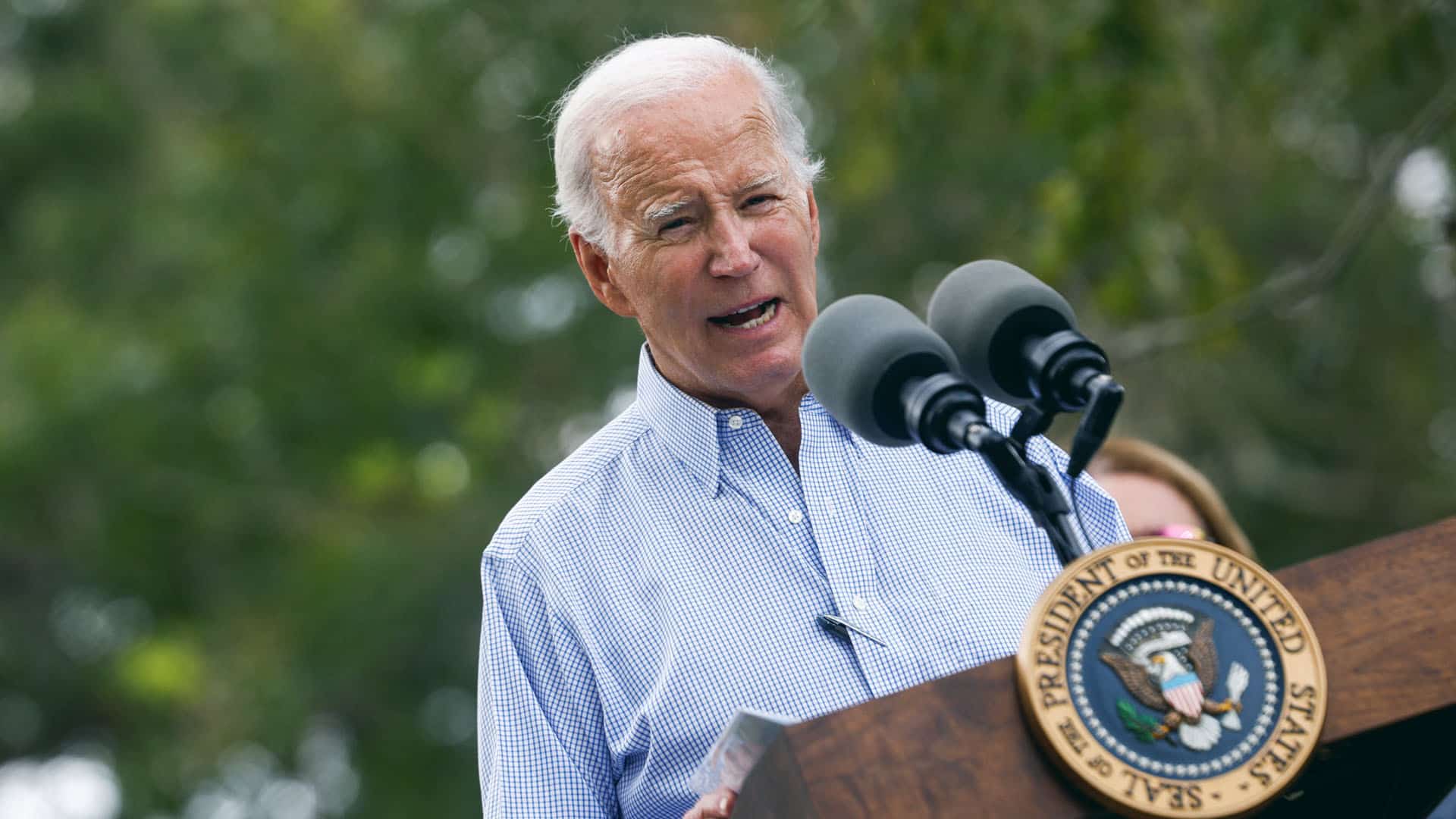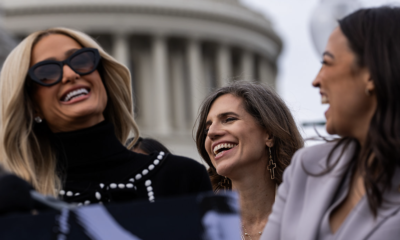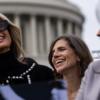Business
Biden to focus on progress on climate, reshaping multilateral development banks at G20 Summit: White House
The key focus areas for President Joe Biden at the G20 Summit include delivering for developing nations, making progress on key issues like climate, technology and reshaping the multilateral development banks, the White House has said, expressing hope that the bloc will be able to make headway on those topics under Prime Minister Narendra Modi’s leadership.
On Thursday, President Biden will travel to New Delhi to attend the G20 Leaders’ Summit. On Friday, President Biden will participate in a bilateral meeting with Prime Minister Modi and on Saturday and Sunday, the President will participate in the official sessions of the G20 Summit. As Biden heads to the G20, he is committed to working with emerging market partners to deliver big things together, National Security Advisor Jake Sullivan said during a press briefing on Tuesday. “That’s what we believe the world will see in New Delhi this weekend,” he said.
America’s commitment to the G20 has not wavered, and it hopes the G20 Summit in New Delhi will show that the world’s major economies can work together even in challenging times, Sullivan said. “So, as we head into New Delhi, our focus is going to be on delivering for developing countries; making progress on key priorities for the American people, from climate to technology; and showing our commitment to the G20 as a forum that can actually, as I said before, deliver,” he said. “And thanks to the leadership of Prime Minister Modi and India’s presidency, we hope we’ll be able to do all of those things,” Sullivan said.
On what the US is bringing to the table at the summit, Sullivan said one of America’s main focuses heading into the G20 is delivering on an agenda of fundamentally reshaping and scaling up the multilateral development banks, especially the World Bank and the IMF. “We know that these institutions are some of the most effective tools that we have for mobilising transparent, high-quality investment into developing countries. And that’s why the United States has championed the major effort that is currently underway to evolve these institutions so that they are up to the challenges of today and tomorrow,” he said.
Just last month, President Biden asked Congress for additional funds that would have the impact of increasing World Bank financing by more than USD 25 billion. “And we’re working to make sure other partners follow our lead,” he said. “And at the G20, we have been leading an effort that we hope will see the G20 endorse this level of ambition and deliver a broader vision of multilateral development banks that are better, bigger, and more effective,” he said. President Biden will also be calling on G20 members as leaders in the global economy to provide meaningful debt relief so that low- and middle-income countries can regain their footing after years of extreme stress, Sullivan said.
“He’ll be clear that the United States expects real progress on ongoing cases by the World Bank and IMF Annual Meetings in Marrakech (Morocco) next month. And he will be clear that we need all G20 members to be constructive and at the table with no exceptions,” he said. vThe bloc also be making progress on other key priorities from climate, to health, to digital technology, including commitments to a more inclusive digital transformation and a responsible path and approach to Artificial Intelligence (AI) development, he said.
“In addition, we’ll spotlight the progress that we’ve been making on the Partnership for Global Infrastructure and Investment or what we call “PGI.” We’ll have some announcements that we’re excited about,” Sullivan said. The US also looking forward to warmly welcoming the African Union as a permanent member of the G20 the newest permanent member. “We believe that the African Union’s voice will make the G20 stronger,” he said. There will be continued focus on how the G20 deals with Russia’s “illegal” and ongoing war in Ukraine, he said. The reality is that Russia’s illegal war has had devastating social and economic consequences, and the poorest countries on the planet are bearing the brunt of that, Sullivan said.
“As he has done before, President Biden will call for a just and durable peace, one founded in respect for international law, principles of the UN Charter, the precepts of territorial integrity and sovereignty. And he will continue to emphasise that the United States will support Ukraine for as long as it takes to redeem these principles,” he said. The United States remain committed to the G20 as a critical forum for all of the major economies of the world to come together for global problem-solving, he said. At a moment when the international economy is suffering from historic and overlapping shocks, it’s more important than ever that countries have a working forum with the world’s largest economies to deliver meaningful outcomes, he said.
The United States is looking forward to hosting the G20 in 2026, he said. Biden will be travelling to Vietnam after concluding his India trip. On the question of whether the US is taking any actions to ensure the safety of journalists travelling with Biden in the light of human rights reports on restrictions on freedom of expression in these nations, Sullivan said, the ability of the American press travelling with Biden to be able to go to the G20 and cover the G20 in an unencumbered way is something that has been a serious priority for this White House. “And we are putting our money where our mouth is in terms of making sure that American press will have all of the access that they need and are entitled to as members of the international press, as members of the White House press,” he said.
President Biden himself has spoken to questions related to democracy and human rights as recently as the state visit earlier this year, he said referring to Prime Minister Modi’s state visit to the US in June. “..Our position on these issues is clear. It is reflected in the statements of our president,” he said. “And when it comes to the trip to Vietnam, we believe that we have a powerful opportunity to advance our partnership in a way that will deliver for the American people and will deliver broader security, stability, and prosperity in the Indo-Pacific. “But we also always raise issues related to freedom of expression, freedom of religion, and other basic human rights that are at the core of the Universal Declaration of Human Rights. This trip will be no exception to that,” Sullivan said.
On the question of the progress that has been made in the last 10 months to get India and China on board on the Ukraine issue after the G20 declaration in Bali in 2022, Sullivan said: “Well, first of all, India signed on to the statement most members. It was, as I recall, Russia who was the main objector to the proposition that so many of the other members of the G20 signed on to.” bHe said the US does not expect that Russia is going to flip its position on the Ukraine war this year. “So, to get absolute consensus on a statement on Ukraine is challenging because you’ve got Russia seated at the table, albeit not at the leader level because (Russian President Vladimir) Putin isn’t going to be there,” he said.
“But the fact that most members of the G20 as most members of the UN General Assembly continue to hold the position that Russia’s war was illegal, in violation of the UN Charter, and that this war must end on terms consistent with the UN Charter that is the result of months of hard diplomacy by the United States and our partners, and it continues to reflect where international sentiment is on this issue,” he said. On a question of whether division between India and China affects cooperation, especially with the climate issue at the summit, Sullivan said: “Really, that’s up to China. If China wants to come in and play the role of spoiler, of course, that option is available to them.”
“What I think that the chair, India, will encourage them to do, what we the United States and every other member virtually every other member in the G20 will do is encourage them to come in in a constructive way on climate, on multilateral development bank reform, on debt relief, on technology, and set aside the geopolitical questions and really focus on problem-solving and delivering for the developing countries,” he said.










































